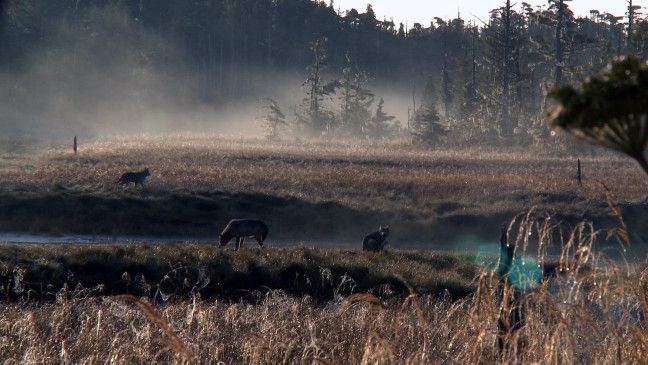Nature + Travel, Tourism
17,000 km Canada
The second part takes the film team through the wild, lonely west of Canada to Vancouver back to Montreal. The contradictions faced by modern Canada have become apparent. But people have learned to accept very different challenges and never give up – always in search of a better life. In Old Crow, Johannes Hano and his crew accompany Harald Frost of the Wuntt Gwichin tribe. Regarded as one of Gwichin’s finest hunters, the Wuntt feels a sense of unity with nature as he proudly displays rare blue wolf pelts. This has been his life for thousands of years, says Harald Frost. With anticipated progress, the bond will eat its way further and further north. Helmets and seatbelts are mandatory and weapons should no longer be carried in the back seat. “The freedoms are being increasingly restricted here,” says Ingrid, who immigrated to the west of Canada more than 60 years ago. In Alberta, the team climbs the Athabasca River with Roy of the Chipewian tribe for seven hours, always in search of oil company security forces to avoid taking them. He is not interested in photographs of the complete destruction of the once spectacular landscape. They are met by Chipewian and Cree chiefs. While some want to fight the oil fields, others are trying to get into the board of directors of corporations. But they are united by the desire for clean water, as cancer cases have increased dramatically in recent years. On the other side of the Rocky Mountains – in Vancouver – the team has experience that even immigration into Canada doesn’t work without problems. Many people are marginalized by the wave of wealthy Chinese immigrants because real estate has become unaffordable and in stores they “can’t find anything for their plus size,” says Keri Starchuk. Meanwhile, in northern British Columbia, photographer and environmentalist Ian McAllister is attempting to protect the northern hemisphere’s last intact rainforest from future pipelines and tankers that will transport oil through intact ecosystems. McAllister aims to document the beauty and uniqueness of nature through film and photography, and dozens of underwater cameras broadcast live 24/7 over the Internet. Its aim is to inspire people to maintain this beauty. “If Canada, if we don’t make it, who else will?” McAllister asks. The film crew is accompanied by Ian McAllister to wolves and killer whales and witness a unique natural spectacle. The report ends in Montreal – after a flight of more than 17,000 kilometers – in a place that feels more like Europe than North America. The team is unparalleled in their diversity in their diversity, from the practice room with Canadian newcomer band Mentana from Quebec to their performance at the Montreal Jazz Festival at the end of a trip through the Canadian summer.

Devoted web advocate. Bacon scholar. Internet lover. Passionate twitteraholic. Unable to type with boxing gloves on. Lifelong beer fanatic.





